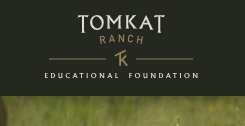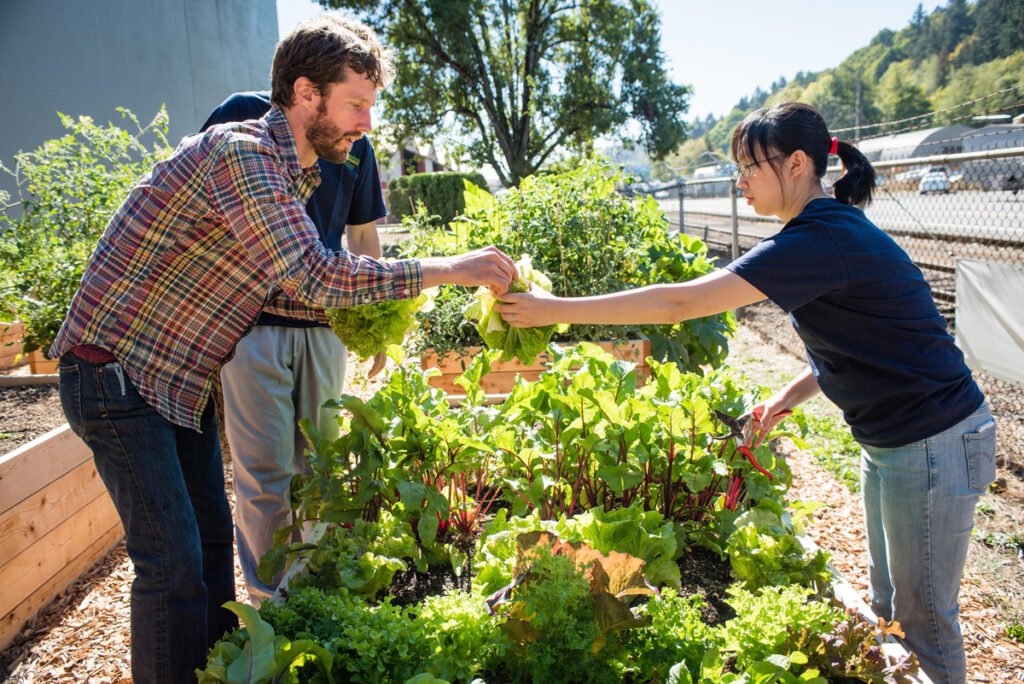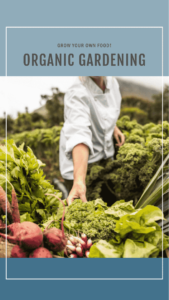Sustainable Food
Introduction to Sustainable Food Systems
As we unpack the challenges – the stark reality of greenhouse gas emissions, the loss of biodiversity, the growing specter of food insecurity, and the immense energy demands of gastronomy – we also light the path towards solutions. This isn’t just about understanding problems; it’s about inspiring and equipping you to be part of a global movement for change.
From exploring the potential of sustainable gastronomy to embracing practices that reduce our environmental footprint, we invite you to be part of a crucial conversation. It’s a dialogue about hope, action, and the power of collective effort. Together, we can reshape our food systems into conduits of environmental stewardship, social equity, and robust health. Let’s embark on this vital journey towards a sustainable future, one plate at a time.
Challenges of Our Current Food System
Exploring Solutions
Food sustainability means producing food in a way that protects the environment, utilizes natural resources efficiently, supports farmers, and enhances the quality of life in communities involved in food production, including both animals and humans. It encompasses a movement that addresses the imbalance between the resources invested in the global food system and the outcomes it produces. Ensuring food sustainability is crucial due to its direct impact on humankind’s ability to provide sufficient food for the current population and future generations. The concept of food sustainability underscores the need for a shift towards a more balanced and environmentally conscious approach to food production and consumption.
We explore two primary ways you can support sustainable food systems:
Eating Local
Your local farmers and seasonal produce are hidden gems in the journey to sustainability. We provide a guide to identifying and connecting with local food sources, including farmers’ markets, community-supported agriculture (CSA), and local food co-ops. By choosing local, you’re not just buying fresh and nutritious food—you’re strengthening community ties and reducing your carbon footprint.
Sprouts Of Promise
Sprouts of Promise offers a clear breakdown of the different ways to support local producers. It explains the concepts of farmers’ markets, CSAs, and co-ops, including how they operate, their benefits, and considerations for consumers. For instance, it looks at the direct support to farmers and the freshness of produce at farmers’ markets, the community-driven aspect and seasonal commitment of CSAs, and the member-owned model of co-ops. The article also suggests considering your lifestyle, budget, and dietary needs when choosing among these options (Sprouts of Promise.)
Supporting Regenerative Farmers
An introduction to regenerative agriculture
Regenerative agriculture goes beyond sustainability; it actively improves ecosystems. It represents a holistic approach to farming, which aims to rejuvenate and revitalize the earth’s ecosystems. This practice extends beyond the principles of sustainability, placing a strong emphasis on enhancing soil health, increasing biodiversity, and restoring the natural balance of ecosystems. Unlike traditional agricultural methods, regenerative agriculture seeks to actively improve the environment rather than merely sustaining it.
The core of regenerative agriculture lies in its focus on soil health. Healthy soil is the foundation for growing nutritious food, and it plays a crucial role in carbon sequestration. By capturing carbon from the atmosphere and storing it in the soil, regenerative practices contribute significantly to combating climate change. This method also aids in water retention and purification, improving the resilience of crops against extreme weather conditions.
Biodiversity is another vital component of regenerative agriculture. By encouraging a variety of plant and animal life, regenerative farms create robust ecosystems. This diversity not only fosters a natural balance within the farm but also supports the surrounding environments.
Regenerative agriculture is not just a set of farming practices; it’s a philosophy that integrates environmental health, sustainable food production, and community well-being. It represents a commitment to nurturing the land that feeds us, ensuring it remains fertile and productive for future generations.
USA

Joyce Farms is a family-owned business dedicated to providing chefs, butchers, and consumers with the finest, most flavorful poultry, beef, and game. Committed to humane, all-natural methods, their products are free from antibiotics, hormones, growth stimulants, and artificial additives. They employ regenerative agriculture practices for their Heritage products, focusing on soil health, animal welfare, and producing nutritious proteins.

White Oak Pastures, a family farm since 1866 in Bluffton, Georgia, focuses on regenerative land management, humane animal husbandry, and revitalizing rural communities. They are committed to radically traditional farming that utilizes every part of pasture-raised animals, supporting a zero-waste production system. Their practices create products that are better for the land, livestock, and local community, embodying a deep pride in sustainable and ethical farming methods.

Polyface Farm is dedicated to healing the land one bite at a time, emphasizing grass-fed beef, pastured pork, and poultry. They practice transparency, allowing anyone to visit and see their operations. Their approach includes grass-based livestock management, respecting the individuality of animals, fostering community through local food, following nature's template, and focusing on enhancing soil health, particularly through earthworm activity. Polyface offers home delivery, pickup, and educational resources, aiming to provide nutritious food while promoting soil regeneration and biodiversity.
Canada

Covert Farms emphasizes regenerative organic farming, focusing on enhancing soil health and biodiversity through practices like no-till farming, ground cover, diverse species planting, and integrating livestock. This approach aims for sustainable vineyards by 2025, leveraging natural rainwater and dew capture. Their methods contribute to a resilient ecosystem, improved crop health, and potentially higher wine quality, embodying a deep commitment to environmental stewardship and sustainable agriculture.

TomKat Ranch Educational Foundation focuses on demonstrating and promoting regenerative ranching practices that benefit the environment. Their efforts are centered on enhancing soil health, supporting biodiversity, and effectively managing water resources, contributing to a more sustainable and resilient ecosystem. By implementing holistic management practices, including managed grazing and soil restoration, they aim to produce healthy food, support wildlife habitats, and mitigate climate change impacts.

Regeneration Canada primarily has a comprehensive directory of regenerative farms across Canada, aiming to connect individuals with local farms that practice soil regeneration techniques. This initiative supports sustainable agriculture by promoting practices that improve soil health, combat climate change, and enhance biodiversity, making it easier for consumers to find and support regenerative farms.
Education
Book Recommendations
- FAST FOOD NATION by Eric Schlosser
A critical analysis of the fast food industry’s impact on society. - ECO-FARM by Charles Walters
Explores sustainable agriculture and natural soil fertility. - PERMACULTURE: DESIGNER’S MANUAL by Bill Mollison
An in-depth guide to sustainable land use design. - TREE CROPS by Russell J. Smith
Advocates for sustainable agriculture through diverse crop cultivation. - THE GIFT OF GOOD LAND by Wendell Berry
Essays on the relationship between culture and agriculture. - ALTARS OF UNHEWN STONE by Wes Jackson
Challenges conventional agricultural practices, promoting ecological methods. - PASTURE PERFECT by Jo Robinson
Highlights the benefits of choosing products from grass-fed animals. - OMNIVORE’S DILEMMA by Michael Pollan
Explores the ethical and environmental implications of our food choices.

Blogs recommendations
- Forever Farms: Offers a comprehensive guide on small-scale regenerative agriculture, highlighting community impact, soil health, biodiversity, and the role in combating global warming.
- Scale Climate Action: Focuses on best practices and benefits of small-scale organic farming, covering crop diversity, organic certification, health benefits, and environmental advantages.
- GrowJourney: Offers practical tips for starting a small farm using regenerative practices, including finding buyers, crop selection, community partnerships, and land acquisition considerations

Other Resources
Andrew Millison is a permaculture instructor and youtuber that has a library of videos teaching environmental stewardship. Here is a great introductory video about growing food through the principles of permaculture.
If permaculture is something you’re interested in then this permaculture design course (PDC) is online, in depth, and one of the best ways to start on your journey towards a sustainable lifestyle.
Self-Sufficiency: Growing Your Own Food
DIY Gardening:
Whether you have a sprawling backyard or a cozy balcony, gardening is within reach. We offer tips and resources for starting your own garden, from soil preparation to selecting the right plants. Learn about creating a food forest that mimics natural ecosystems or setting up an indoor vertical farm for year-round harvests.
GrowJourney:
Offers practical tips for starting a small farm using regenerative practices, including finding buyers, crop selection, community partnerships, and land acquisition considerations.
If you want to learn more about growing your own food in a way that is good for you and the environment consider learning about Permaculture.
Kiss The Ground:
is a great resource if you want to get into sustainable food growing practices. They have fantastic guides, and educational content on regenerative agriculture to nurture soil health and build
resilient food systems.
Organic Gardening Ebook

Professional Assistance:
Not everyone has a green thumb, and that’s perfectly okay. Below are resources that list reputable companies that can design, install, and manage your gardening space. From initial design consultations to regular maintenance, find the right professional assistance to turn your self-sufficiency dreams into reality.
The Civil Eats article discusses the movement towards “unlawning” America, transforming traditional, resource-intensive lawns into edible landscapes. This nationwide trend is supported by 12 businesses featured in the article, aiming to create food forests with native plants, fruit trees, and habitats for pollinators and wildlife, enhancing biodiversity and soil health. These efforts represent a shift towards sustainable and productive use of outdoor spaces, contributing to local food security and ecological benefits.
The Foodscaper Directory connects individuals with professional foodscapers and ecological designers across the US and Canada who specialize in creating food-producing landscapes. These professionals design, install, and maintain edible landscapes for clients, promoting sustainable and productive use of outdoor spaces. The directory is open for new foodscaping businesses to join and for clients to find a foodscaper in their region
